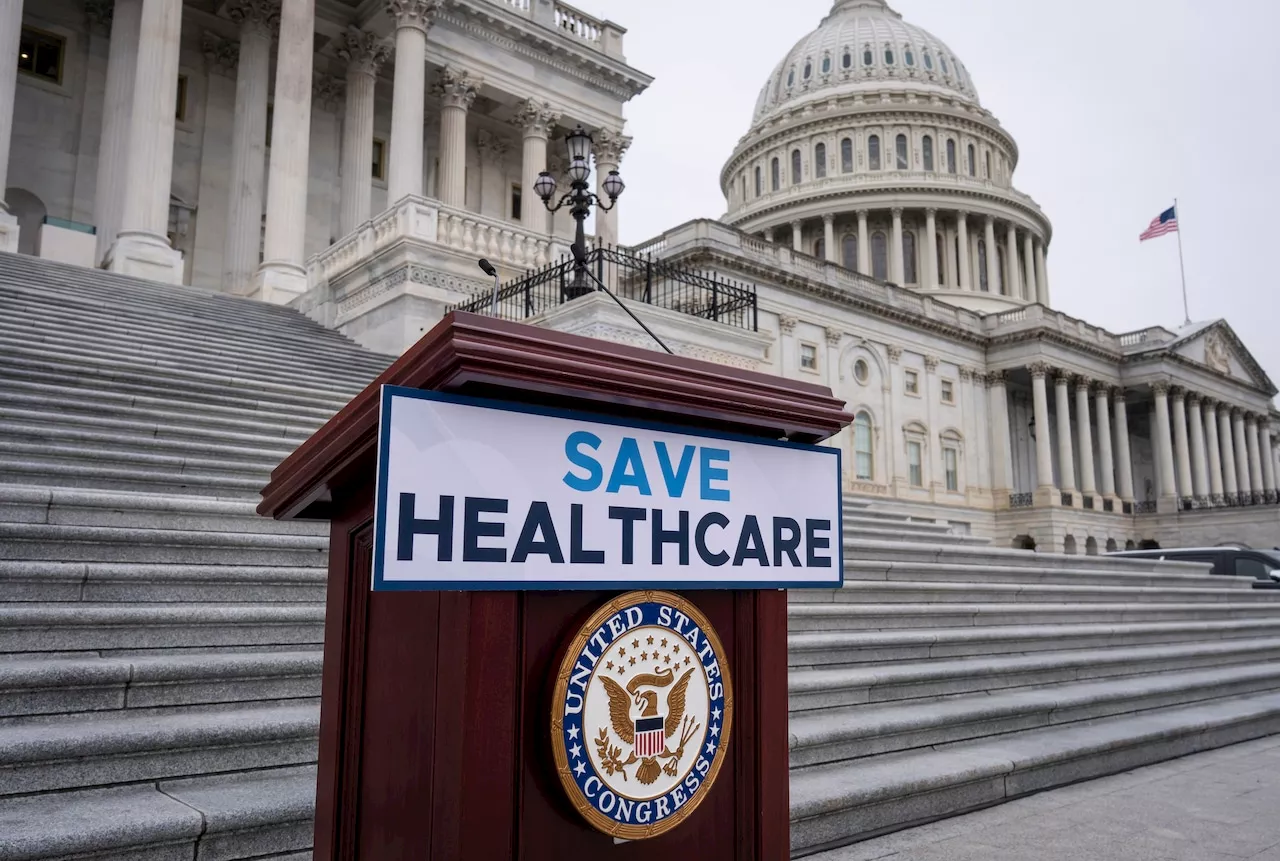Health
Health Care Debate Intensifies as Subsidies Face Expiration

The ongoing government shutdown has brought the future of health care subsidies to the forefront of political debate in the United States. As of October 1, 2025, Congress faces a critical deadline concerning the expiration of tax credits associated with the Affordable Care Act (ACA), commonly known as Obamacare. These tax credits, which have made health insurance more accessible for millions, are set to expire on January 1, 2026, raising concerns about rising health care costs for many Americans.
A recent poll indicated that approximately 60% of Americans are “extremely” or “very” concerned about potential increases in their health care expenses over the coming year. In response, House Democrats are preparing to advocate for the inclusion of an extension for these expiring health care benefits as part of any government funding agreement. On September 30, 2025, they planned a demonstration on the steps of the Capitol to emphasize the urgency of this matter.
Discussions surrounding the ACA have been contentious for over a decade. The law, enacted in 2010, aimed to reduce the number of uninsured individuals and make health coverage more affordable. Through state-run exchanges, it sought to expand insurance access and lower costs. In 2021, when Democrats held a majority in Congress, they expanded premium assistance under the ACA to further support low-income individuals, eliminating premiums for some enrollees and capping costs for higher earners at 8.5% of their income.
Should the tax credits lapse, projected out-of-pocket premiums could rise by an estimated 114%, averaging an additional $1,016 per year for affected individuals, according to analysis from the Kaiser Family Foundation (KFF). Although Democrats temporarily extended these credits in 2022 for three additional years, achieving a permanent solution has proven elusive.
The political landscape remains divided. Republicans assert that they will not negotiate on health care benefits until Democrats agree to reopen the government. This has stalled progress, as both parties have been working behind the scenes on potential compromises.
Republican lawmakers have voiced their longstanding criticisms of the ACA, arguing for a comprehensive overhaul rather than mere extensions of subsidies. Senator Rick Scott of Florida emphasized that the fundamental issue lies in the overall cost of health care, rather than the expiring subsidies themselves. Meanwhile, some members of the Republican Party are open to extending the subsidies with modifications, such as adjusting income limits and discontinuing automatic enrollment.
Notably, bipartisan discussions have emerged, with various Republican senators, including Josh Hawley of Missouri, acknowledging the necessity of reforming the subsidy program. Hawley indicated that many users of the ACA exchanges lack viable alternatives and face high costs, suggesting that reforms should consider income limits to ensure all enrollees understand their coverage.
As lawmakers grapple with these issues, the urgency to reach a consensus is heightened by the upcoming November 1 open enrollment date. Senator Jeanne Shaheen of New Hampshire has been actively seeking common ground, proposing that Congress could also consider extending the enrollment period to alleviate some of the pressure surrounding the subsidy debate.
While both parties remain at an impasse, the implications of the subsidy expiration loom large. Lawmakers acknowledge that the outcome could significantly impact health care access and affordability for millions of Americans, emphasizing the need for a timely resolution to this critical issue.
-

 Science4 weeks ago
Science4 weeks agoALMA Discovers Companion Orbiting Giant Red Star π 1 Gruis
-

 Top Stories2 months ago
Top Stories2 months agoNew ‘Star Trek: Voyager’ Game Demo Released, Players Test Limits
-

 Politics2 months ago
Politics2 months agoSEVENTEEN’s Mingyu Faces Backlash Over Alcohol Incident at Concert
-

 World2 months ago
World2 months agoGlobal Air Forces Ranked by Annual Defense Budgets in 2025
-

 World2 months ago
World2 months agoMass Production of F-35 Fighter Jet Drives Down Costs
-

 World2 months ago
World2 months agoElectrification Challenges Demand Advanced Multiphysics Modeling
-

 Business2 months ago
Business2 months agoGold Investment Surge: Top Mutual Funds and ETF Alternatives
-

 Science2 months ago
Science2 months agoTime Crystals Revolutionize Quantum Computing Potential
-

 Top Stories2 months ago
Top Stories2 months agoDirecTV to Launch AI-Driven Ads with User Likenesses in 2026
-

 Entertainment2 months ago
Entertainment2 months agoFreeport Art Gallery Transforms Waste into Creative Masterpieces
-

 Business2 months ago
Business2 months agoUS Government Denies Coal Lease Bid, Impacting Industry Revival Efforts
-

 Health2 months ago
Health2 months agoGavin Newsom Critiques Trump’s Health and National Guard Plans








